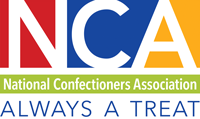International Cocoa Supply Chain Due Diligence Principles
Industry Principles to Address Child Labor
Introduction
As the trade association representing United States users of imported cocoa, the National Confectioners Association (NCA), its member companies and partner organizations like the World Cocoa Foundation and the Cocoa Merchants Association of America take the responsibility of addressing child labor (as defined by the International Labor Organization) in the cocoa supply chain seriously.
NCA and its member companies are also committed to eliminating forced labor individually and through a multi-stakeholder global approach.[1] In the industry’s experience, instances of forced labor are extremely rare. All instances of these criminal abuses identified by industry members are immediately reported to the proper authorities. In addition, the industry continues to support efforts to monitor, prevent, mitigate and remedy child labor in its international supply chains. These industry-led commitments are yielding advances and critical learning in eliminating and mitigating the worst forms of child labor in the cocoa supply chain. However, the absence of mandatory and enforceable government requirements – in both cocoa-producing and cocoa-consuming nations – has not provided an adequately strong legal framework to sustain lasting improvements.
While NCA member companies have made progress toward developing systemic interventions to address child labor, such as developing the Child Labor Monitoring and Remediation System (CLMRS), these systems have not yet been deployed at sufficient scale. The efficacy of intervention techniques like CLMRS are made more difficult by the lack of basic infrastructure, birth certificates, long distances from farms to schools, insufficient children rights’ safeguards and migration flows from neighboring countries – all factors that increase the risk of occurrences of child labor.
NCA believes that a collaborative framework based on commitments from public and private stakeholders (including governments of cocoa-producing countries, industry stakeholders, U.S. authorities, International Organizations, civil society, farmers and local communities) is the best approach to build effective partnerships and promote a sustainable and transparent cocoa supply chain. More robust traceability systems that engage all actors in the supply chain need to be formally embedded in producing countries’ cocoa sourcing and marketing mechanisms to allow a proper chain of custody for cocoa products. This will only be made possible if the cocoa-producing countries’ governments and those of their bordering nations significantly strengthen sector policies, support a cooperative approach with private and civil society actors from the cocoa sector on the supply and demand sides and convene these stakeholders to determine the best approach to strengthen existing systems. Traceability must also be coupled with an effective farmer registration system.
NCA further recognizes that voluntary measures cannot alone solve these issues without a strong enforcement strategy in both producing and consuming countries. The legal framework and law enforcement capacity in cocoa-producing countries are not sufficiently robust to address the complex issues of forced labor and child labor, and U.S. diplomatic efforts must be aimed at helping support and sustain robust rule of law mechanisms.
Due Diligence Principles
NCA supports “Due Diligence” efforts to create an enforceable legal environment that allows robust action to eliminate forced labor and child labor in cocoa supply chains, as well as the supply chains of other commodities used in confectionery production. As governing bodies in the United States contemplate legislative and/or regulatory action to intervene in international business supply chains’ child labor prevention, NCA welcomes the important role a variety of U.S. government stakeholders will play in efforts to provide lasting solutions and encourages the inclusion of the following principles in any statutory or regulatory framework:
- Definitions and requirements should be consistent with internationally agreed upon standards.
- International standard setting bodies – like the United Nations Guiding Principles on Business and Human Rights (UNGPs), the ILO Core Conventions and the Organization for Economic Cooperation and Development Food and Agriculture Organizations of the United Nations (OECD-FAO) Guidance for Responsible Agricultural Supply Chains – define “due diligence” as assessing human rights impacts, integrating and acting on the findings, tracking responses and communicating how the impacts are addressed.
- In addition, these international standards assert that:
A) Companies should conduct due diligence in collaboration with relevant stakeholders and in relevant supply chains, prioritizing actions undertaken based on the greatest risk to people;
B) Due diligence requirements must focus on assessing actual and potential child labor concerns, integrating those assessments, acting on the findings, tracking the responses and mitigation activities and communicating the success of such actions;
C) Mitigation activities should be prioritized in areas where there is the greatest risk; and
D) Companies should be responsible for establishing a due diligence system aligned with a prioritization approach and the intent of UNGPs.
- Requirements should be harmonized globally to avoid patchwork mandates.
- NCA supports the development of consensus international standards for reporting due diligence activities, which will encourage greater adoption across sectors and regions and allow for common benchmarks.
- Requirements should recognize existing laws in cocoa-producing countries regarding the protection of producer privacy.
- Compliance mechanisms should include all relevant businesses across the cocoa supply chain.
- It is critical to the success of due diligence efforts that there be regulatory uniformity for all relevant businesses and cocoa origin countries in the supply chain. NCA notes that it may be necessary to tailor regulations based on a variety of factors (e.g., business size), but the end goal of uniformity must be maintained.
- Disclosure and accountability are critical.
- NCA supports efforts to require companies to publicly and conspicuously declare due diligence activities.
- United States governance structure must be unified.
- NCA supports coordination across the United States federal government in the development of a working framework for the governance of due diligence programs.
[1] According to the International Labor Organization (ILO), the terms “worst forms of child labor,” “forced labor” and “acceptable child work” have separate and distinct legal definitions and it is important to understand those differences for purposes of this document. For more information visit ilo.org.





